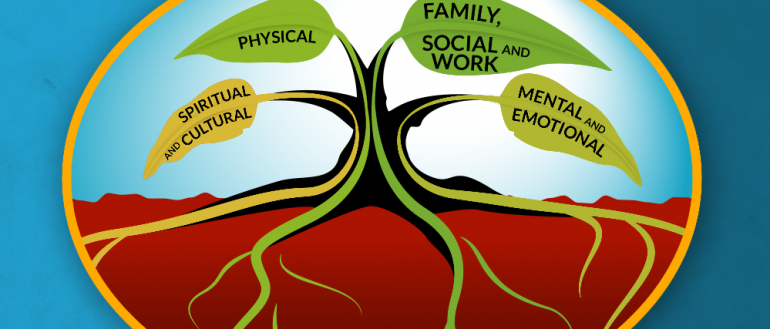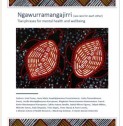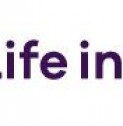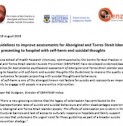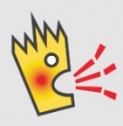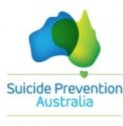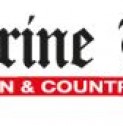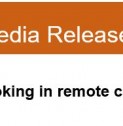The Aboriginal and Islander Mental health initiative (AIMhi) at Menzies works with Aboriginal and Torres Strait Islander researchers, practitioners, organisations and communities to build resilience and address healing through strengths-based approaches to wellbeing and mental health promotion and treatment.
Our research focus:
- To promote culturally appropriate, strengths-based approaches to wellbeing assessment and treatment for First Nations people and to communicate strengths-based 'two-way' mental health messages
- To promote delivery of wellbeing services and messages in First Nations languages
- To address mental health literacy needs in remote and urban settings for primary care and specialist services.
- To build the capacity of First-Nations and non-Indigenous practitioners and service providers working with First Nations clients to address wellbeing
- To facilitate the development and implementation of culturally appropriate digital tools that address the wellbeing of First Nations people
- To support capacity building of First Nations researchers and to conduct research that provides practical and culturally appropriate early intervention and treatment.
Our research impact:
- AIMhi has developed a new strengths-based brief intervention, motivational care planning, in collaboration with Aboriginal Mental Health Workers and community leaders. Motivational care planning has been shown to reduce depressive symptoms and alcohol dependence in a randomised controlled trial.
- AIMhi has developed a range of tools for service providers working with First Nations people and communities to promote resilience and provide strategies to address contributors to mental illness, such as social issues, work worries and family stress.
- The AIMhi Stay Strong Plan and other AIMhi resources have been developed collaboratively and continue to be used in a diverse range of settings across the country. The AIMhi resources promote integrated care and are used in mental health, substance use, youth, primary care, perinatal and chronic disease services. The CARPA Standard Treatment Manual recommends the AIMhi Stay Strong Plan for First Nations clients with wellbeing concerns.
- The AIMhi Stay Strong App is one of very few e-mental health resources designed to meet the needs of First Nations Australians and is supported by the Australian Government’s e-Mental Health Strategy. The AIMhi Stay Strong App has been adapted for use with First Nations renal patients, First Nations clients of family services, and for farmers and graziers.
- Hundreds of health professionals, community workers and service providers from across Australia have been trained in different settings in use of the AIMhi approach.
- An emerging suite of digital resources have been translated into 10 First Nations languages.
- AIMhi has collaborated with the ABCD partnership and One21seventy to develop primary care tools that support best practice in mental health and youth health.
Funders and collaborators:
- National Health and Medical Research Council
- Channel 7
- Northern Territory Primary Health Network, Western Queensland Primary Health Network, South Australia Country Primary Health Network
- Australian Government
- Suicide Prevention Australia
- Lifeline
- Harold Mitchell Foundation
- Beyondblue
- National Disability Insurance Agency
- Aboriginal Family Support Services
- Associate Professor Tricia Nagel (MBBS FRANZCP PhD)
- Dr Kylie Dingwall
- Dr Michelle Sweet
- Dr Bua Raphiphatthana
- Stefanie Puszka
- Josie Povey
- (Robert) Jana Mills
- Karen Black
- AIMhi pictorial care plan
- AIMhi Stay Strong iPad App
- AIMhi Stay Strong Android App
- AIMhi Stay Strong Planning | Brief Treatment Manual
- AIMhi anxiety
- AIMhi brief wellbeing screener
- AIMhi brief yarning about wellbeing
- AIMHi delirium
- AIMhi dementia
- AIMhi depression
- AIMhi making change - no worries!
- AIMhi mania
- AIMhi mental health assessment form
- AIMhi mental health medication story handout
- Mental health medication story flipchart
- PACT protocol manual
- AIMhi psychosis
- AIMhi stay strong plan - four page
- AIMhi stay strong plan - two page
- AIMhi 'What Keeps Me Strong?'
- AIMhi 'What is mania?'
- AIMhi Yarning about alcohol
- AIMhi Yarning about mental health - Becoming better, becoming stronger
- AIMhi Yarning about mental health - Make change grow strong story
- AIMhi Yarning about relapse
- AIMhi Yarning about sadness brochure
- AIMhi Yarning about services
- AIMhi Yarning about work
- Yarning about smoking
- NDIS ECEI Fact Sheet 1
- NDIS ECEI Fact Sheet 2
- NDIS ECEI Fact Sheet 3
- NDIS Fact Sheet 1
- NDIS Fact Sheet 2
- NDIS Fact Sheet 3
- NDIS no shame brochure
- NDIS pathways brochure
- NDIS youth brochure
-
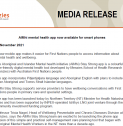
AIMhi mental health app now available for smart phones
The AIMhi Stay Strong app is a colourful, user-friendly digital mental health tool developed by Menzies with Australian First Nations people.
-
MEDIA RELEASE | Ngawurramangajirri - Tiwi phrases for mental health and wellbeing
A new Tiwi to English phrase book to help people talk about mental health and wellbeing is being launched in Wurrumiyanga.
-
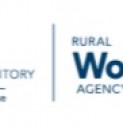
National Suicide Prevention Trial - two new programs announced
New programs have been announced as part of a National Suicide Prevention Trial underway in the Northern Territory.
-
Guidelines to improve assessments for Aboriginal and Torres Strait Islander people presenting to hospital with self-harm and suicidal thought
Scimex (the Science Media Exchange) is an online news portal aimed primarily at helping journalists cover science.
-
Guidelines to improve assessments for Aboriginal and Torres Strait Islander people presenting to hospital
Life in Mind is a national gateway connecting Australian suicide prevention services to each other and the community.
-
New guidelines to improve assessments for Aboriginal and Torres Strait Islander people presenting to hospital with self-harm and suicidal thoughts
The Centre for Best Practice in Aboriginal and Torres Strait Islander Suicide Prevention - Guidelines for Aboriginal and Torres Strait Islander people presenting to hospital with self-harm and suicidal thought
-
NEW GUIDELINES TO IMPROVE CARE OF ABORIGINAL AND TORRES STRAIT ISLANDER PEOPLE AT RISK OF SELF-HARM AND SUICIDE
Tanja Hirvonen, Bernard Leckning and Gary Robinson write: Aboriginal and Torres Strait Islander people have higher rates of hospitalisation involving self-harm in comparison with non-Indigenous Australians
-
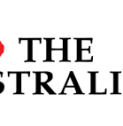
At Pioneer FC, suicide does discriminate
Gary Robinson, a suicide researcher at Menzies School of Health Research in Darwin, traces a wave of suicides that hit Western Australia’s Kimberley region in recent years to the arrival of alcohol and cash-based economies, and a breakdown of cultural authority structures
-
The Wire | NEW ONLINE TOOL INTRODUCED TO PREVENT BULLYING OF INDIGENOUS YOUTH
Digital Trakz uses interactive cartoon graphics to present real-life scenarios of bullying and teasing that happens in the Indigenous communities and asks youth what they what do in particular situations.
-
$630,000 Injected into Suicide Prevention PhD Research
Six PhD candidates from five Australian universities in Victoria, New South Wales, Queensland and the Northern Territory will each receive $105,000 in funding to undertake new research into suicide prevention over three years.
-
Tackling smoking in remote communities
The development of Yarning about Smoking is a collaboration between the Health Department’s Remote Alcohol and Other Drugs Workforce Program in Primary Health Care and the Menzies School of Health Research
-
NTG Media Release | Tackling smoking in remote communities
The development of Yarning about Smoking is a collaboration between the Health Department’s Remote Alcohol and Other Drugs Workforce Program in Primary Health Care and the Menzies School of Health Research. The resource can be used and accessed by people all across the Health Department as well as the NGO sector to provide assessments and intervention with people who are smoking.
-

Mental health is important for everyone
- Dingwall, K.M., Nagel, T., Hughes, J.T., Kavanagh, D.J., Cass, A., Howard, K., Sweet, M., Brown, S., Sajiv, C. & Majoni, S.W. (2019). Wellbeing intervention for chronic kidney disease (WICKD): a randomised controlled trial study protocol, BMC Psychology, 7, 2. doi: 10.1186/s40359-018-0264-x.
- Puszka, S., Dingwall, K., Sweet, M. & Nagel, T. (2016). E-Mental Health Innovations for Aboriginal and Torres Strait Islander Australians: A Qualitative Study of Implementation Needs in Health Services. JMIR Mental Health, 3(3), e43.
- Povey, J., Mills, P.P., Dingwall, K.M., Lowell, A., Singer, J., Rotumah, D., Bennett-Levy, J. & Nagel, T. (2016). Acceptability of Mental Health Apps for Aboriginal and Torres Strait Islander Australians: A Qualitative Study. Journal of Medical Internet Research, 18(3), e65. doi: 10.2196/jmir.5314.
- Dingwall, K., Puszka, S., Sweet, M., Mills, P.P. & Nagel, T. (2015). Evaluation of a culturally adapted training course in Indigenous e-mental health. Australasian Psychiatry, 23(6), 630-635. doi: 10.1177/1039856215608282
- Dingwall, K.M., Puszka, S., Sweet, M. & Nagel, T. (2015). “Like drawing into sand”: Acceptability, feasibility and appropriateness of a new e-mental health resource for service providers working with Aboriginal and Torres Strait Islander people. Australian Psychologist, 50, 60-9. doi: 10.1111/ap.12100.
- Puszka, S., Nagel, T., Matthews, V., Mosca, D., Piovesan, R., Nori, A. & Bailie, R. (2015). Monitoring and assessing the quality of care for youth: developing an audit tool using an expert consensus approach. International Journal of Mental Health Systems, 9(28). doi: 10.1186/s13033-015-0019-5.
- Prowse, P. & Nagel, T. (2014). Developing an instrument for assessing fidelity of motivational care planning: The Aboriginal and Islander Mental health initiative adherence scale. International Journal of Mental Health Systems, 8, 36. doi: 10.1186/1752-4458-8-36.
- Schierhout, G., Nagel, T., Si, D., Connors, C., Brown, A. & Bailie, R. (2013). Do competing demands of physical illness in type 2 diabetes influence depression screening, documentation and management in primary care: a cross-sectional analytic study in Aboriginal and Torres Strait Islander primary health care settings. International Journal of Mental Health Systems 7(1), 16. doi: 10.1186/1752-4458-7-16.
- Nagel, T. & Thompson, C. (2010). The central role of Aboriginal families in motivational counseling: family support and family ‘humbug’. Australian Indigenous HealthBulletin, 10(1).
- Liliberte, A., Nagel, T. & Haswell, M. (2010). LI-CBT with Indigenous consumers: creative solutions for culturally appropriate mental health care In: Oxford Guide to Low Intensity CBT Interventions. In Bennett-Levy, et al. Oxford Guide to Low Intensity CBT Interventions. Oxford Guides in Cognitive Behavioural Therapy. Oxford University Press; Oxford, UK, 577-585.
- Nagel, T., Thompson, C., Spencer, N., Judd, J. & Williams, R. (2009). Two way approaches to Indigenous mental health training: Brief training in brief interventions. Australian e-Journal for the Advancement of Mental Health (AeJAMH), 8(2).
Click here to view more mental health publications in PubMed.

